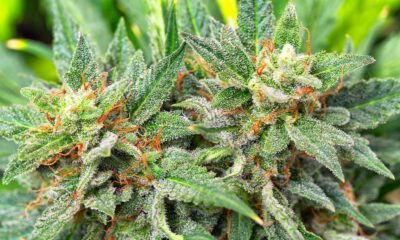
Joint Opinions
Marijuana ‘Legalization’ is Only the First Step Towards Drug-War Justice
Without amnesty for “offenders” and economic equity, cannabis legalization remains an unfinished and imperfect experiment.
These are the headiest of times to be connected to marijuana, when purpose and meaning is forgotten among all the winning.
The momentum marijuana legalization enjoys at this moment — with Oklahoma (Oklahoma!) becoming the latest deep-red state to embrace medical marijuana, in the same week that the first cannabis-based pharmaceutical was approved for sale in the U.S. and Vermont’s legalization became official — seems unstoppable. Victory is following victory, governments are stepping in line behind the peoples’ will and markets are kicking into overdrive.
But runaway trains are problems. They are hard to stop, they move without pause for cause or reason, and, as they hurtle unchecked through stations and off the rails, they create victims. In marijuana legalization’s case, they heap insult upon injury upon injury.
We’re getting closer and closer to widespread legalization, but without total decriminalization. And the people to suffer the consequences are, by and large, the same victims the drug war has claimed from the beginning.
To torture a metaphor: The war is not won, yet the victory parade is in full swing.
In 2013:
“What matters now, Trudeau said, is ending a marijuana prohibition policy that he says costs law enforcement $500 million a year and has left 475,000 people with criminal records since the Conservatives took office in 2006.”
He continued it. https://t.co/Q7z64oGbaR
— Jodie Emery (@JodieEmery) June 27, 2018
In Canada, marijuana legalization means business and investment opportunities, sales and dividends. It does not mean the end of arrests, the end of racially disparate arrest rates — and it does not mean any amnesty for those caught up in arrests at any time before the present “peace.
“When marijuana retail stores in Canada open for business in October, opportunities for economic opportunity will be limited. Stores will be government-run. Canadians arrested for marijuana have barriers to obtaining licenses to participate in the industry — and any other industry, with five-year waiting periods and $600 fines for anyone wishing to remove a job-killing “offense” from their records.
The situation Canada-based activist Jodie Emery describes above — with arrests for marijuana-related activity continuing, even as governments prepare for recreational marijuana sales under the legalization scheme Prime Minister Justin Trudeau said should be subordinate to criminal-justice reform — is not unique. Nearly everywhere marijuana is legal, marijuana users still face serious consequences should authorities choose to wield it.
In California, the oldest and biggest legal marijuana market in the world, cannabis users still don’t enjoy employment protection. If you live in the Golden State, be aware that your boss can still fire you for using marijuana, on your off-hours, with no connection to poor work performance required. Canadians can still be banned from entering the United States for life simply for using marijuana. And, everywhere you turn, poor people and people of color are still arrested the most and involved the least in business opportunities. They are the first in and the last out — and they’re not out yet.
Some forward-thinking law-enforcement officers have taken the initiative — with district attorneys in Washington and California devising ways to wipe old weed offenses from the books, with computer programs, if necessary — but these have been newsworthy exceptions that prove the rule.
Marijuana legalization is an imperfect and incomplete experiment and will remain so until it is applied evenly and universally — when, if it remains erratic, it will become a failed one.
TELL US, what does cannabis legalization mean to you?

























